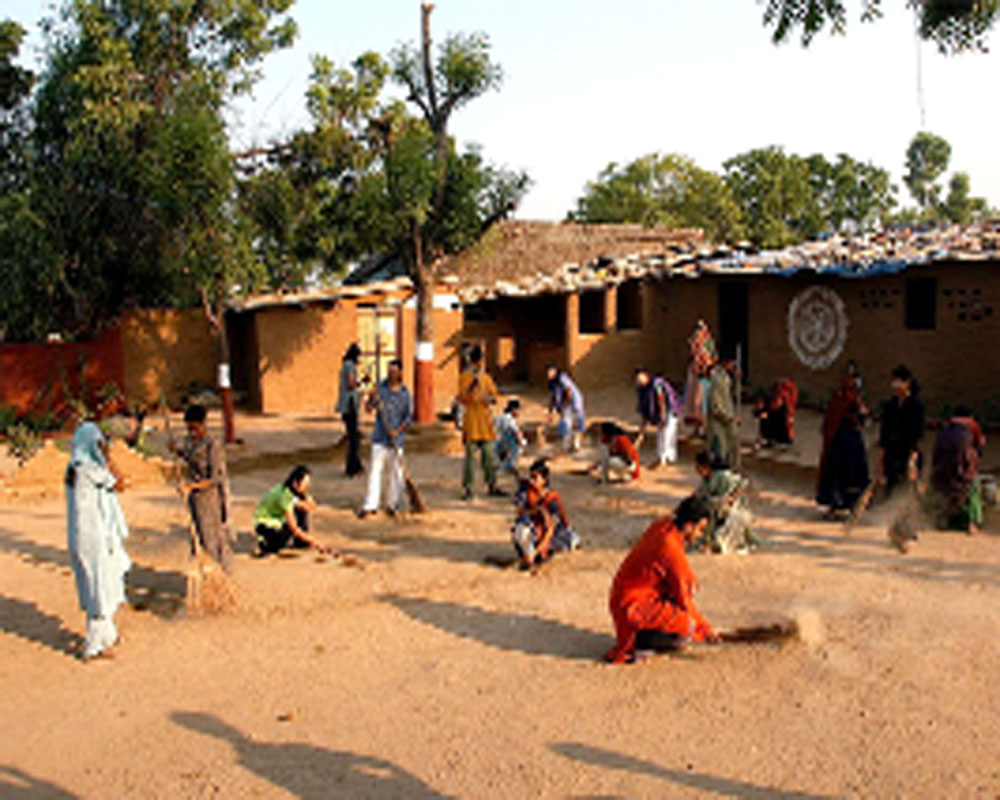India has a sizable youth population and if they do not affect social change, who will?
Most of us are very much aware of the phenomenon known as the ‘Generation Gap’, which in simple language can be described as a ‘wide difference in cultural norms between members of a younger generation and their elders.’ It can also be described as a situation which occurs when older and younger people don't understand each other’s point of view because of their different life experiences, opinions, habits and behaviour.’ Though it is a very common issue, sometimes it becomes a very serious one. One thing that is universally recognised regarding the youth is that the youth, in general, have energy, stamina, strong will and zest for life. But certain other valuable characteristics of youth, which can be great tools for social transformation are not fully realised or utilised by society, and as a result of this, they get confused and disturbed. One such important personality trait of the youth is that they strongly aspire to do something new. They want change, not status quo. They are not tied down to the past and, instead, have an openness to accept new things. Hence it is easier for them to adapt to any kind of change in comparison to the older generation because they have the wish to learn new things.
Compared to this, the old generation has, no doubt, experience but most of their ideas have already been applied to situations in life and they may not now have any new concepts and adequate energy to work in real life. So, the old order has to change, giving place to new, as the saying goes, and, in this work of social transformation, youth- the new blood-have to play a vigorous role to usher in a new era. It has, therefore, rightly been said that if the youth are awakened, the whole world will get awakened because not only will the awakened youth themselves be a great achievement of their country but they will work, as leading lights, for the tender-aged children who, following their example, will prepare themselves mentally and physically for the dawn of new era.
But, have the potentialities of the youth been utilised for the work of national reconstruction so far? Have they been given the opportunities and guidance to fulfil their dreams of taking the world into a new era of peace and prosperity? Well! If we take into view the Indian situation, we can say, in general terms, that the youth are restless and disappointed because their abilities have not been provided with enough channels for self-expression and fulfilment. Today most of them have a complaint against society in general and against those who are in the seats of authority in particular.
They say that their energies- both mental and physical - are not being used in wider spheres of national development because the older generation denies them adequate participation, thinking that the youth are inexperienced and immature. Against this thinking, the youth argue that what the elders call “experience” and “maturity” is, in fact, a hindrance in breaking new grounds and what is required at present is new initiatives, new ideas adventures and innovativeness which is a characteristic that’s mainly present in youth.
All would agree that to bridge the ever-widening gap of emotional estrangement between the older and the younger generations and to stop further erosion in values, whosoever may have been responsible for it until now, is to have such formal and informal educational centres and institutions which can inspire the youth to some higher principles and ideals and can fire their imagination with a new paradigm of society where there will be no violence and where all would live peacefully as loving members of the family of mankind. These institutions should have persons of ennobling character, pleasing manners, and loving demeanour who can awaken the potentialities of the youth for social reconstruction and can also bring change in the older generation and enable them to play a useful role in the work of nation-building.
(The writer is a spiritual educator & popular columnist; views are personal)


























